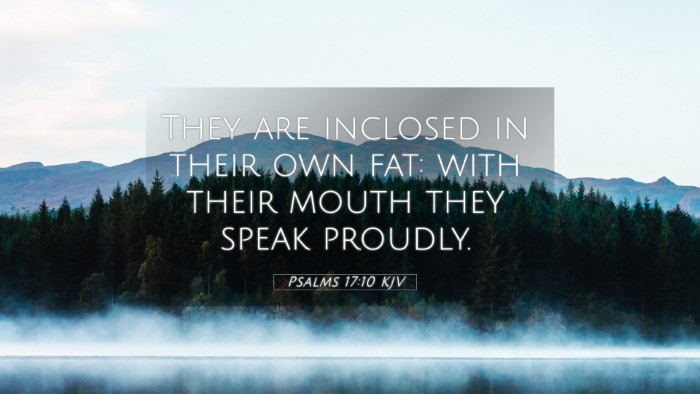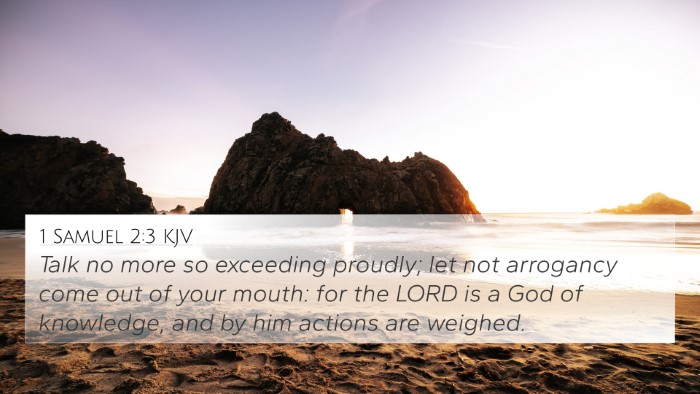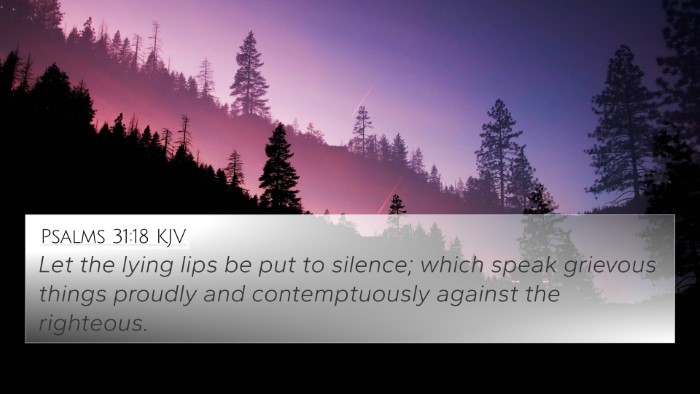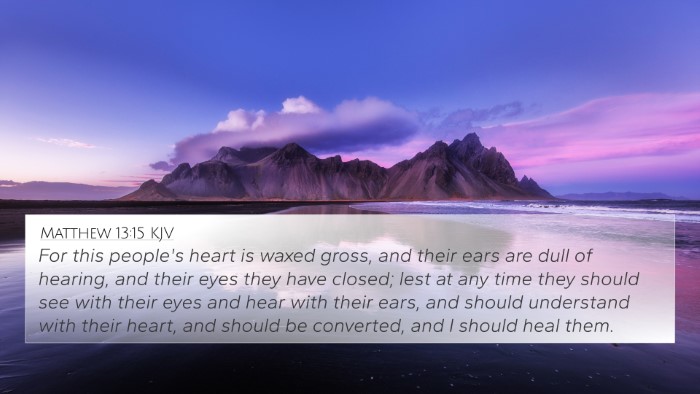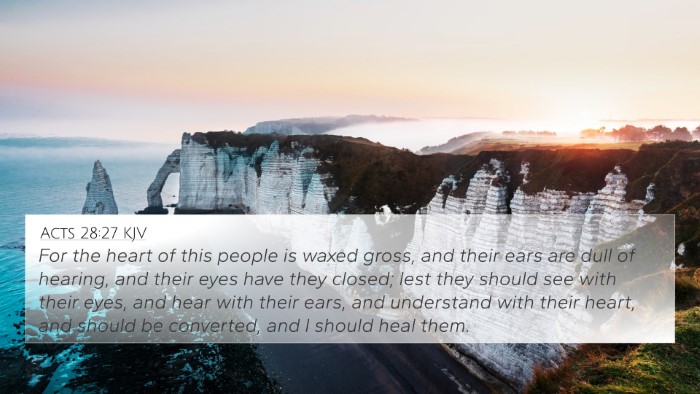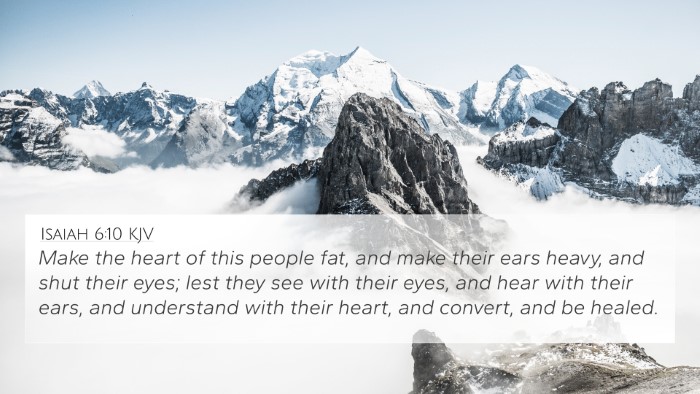Understanding Psalms 17:10
Psalms 17:10 reads: "They are enclosed in their own fat; with their mouth they speak proudly." This verse, from the Psalms, captures various spiritual themes that reflect human nature, pride, and the relationship between the speaker and the oppressors. Public domain commentaries provide insight into the deeper meanings of this verse, illustrating its relevance to both historical context and modern application.
Meaning and Analysis
This verse addresses the arrogance and pride of the wicked. The imagery of being "enclosed in their own fat" suggests a state of self-indulgence and comfort that further separates these individuals from humility and the divine. This can be related to the theme of divine justice, and the assurance that God will eventually deal with pride and injustice. Let's delve deeper into the commentary insights.
Insights from Commentators
- Matthew Henry:
Henry notes that this verse captures the conceit of the ungodly who, despite their external prosperity, are spiritually impoverished. Their proud words reveal a heart that is closed off from empathy or humility. This emphasizes God’s perspective on human arrogance.
- Albert Barnes:
Barnes elaborates on the metaphor of being 'enclosed' as indicative of a trapped state, where the wicked are so consumed by their self-satisfaction that they cannot recognize their spiritual plight. The proud speech signifies arrogance against God’s righteousness.
- Adam Clarke:
Clarke highlights the need for believers to be vigilant about pride, suggesting that the psalmist is lamenting over the attitude of arrogance that oppressively reigns among the wicked. He provides a contrast between the faithful's reliance on God versus the self-reliance of the proud.
Cross References and Related Verses
To further appreciate the depth of Psalms 17:10, we can explore several Bible verse cross-references that relate to the themes of pride, oppression, and divine justice:
- Proverbs 16:18: "Pride goes before destruction, and a haughty spirit before a fall." This underscores the consequences of pride.
- James 4:6: "But he gives more grace. Therefore it says, 'God opposes the proud, but gives grace to the humble.'" This verse parallels the theme of God's stance against pride.
- Psalm 36:1: "Transgression speaks to the wicked deep in his heart; there is no fear of God before his eyes." It illustrates a similar arrogant mindset.
- Psalm 31:18: "Let the lying lips be mute, which speak insolently against the righteous in pride and contempt." This connects to the boastful speech highlighted in Psalms 17:10.
- Psalms 10:4: "In the pride of his face the wicked does not seek him; all his thoughts are, 'There is no God.'" This emphasizes the separation from God that pride fosters.
- Isaiah 2:12: "For the Lord of hosts has a day against all that is proud and lofty, against all that is lifted up—and it shall be brought low." It resonates with the theme of divine justice against pride.
- Philippians 2:3: "Do nothing from selfish ambition or conceit, but in humility count others more significant than yourselves." This instructs believers to reject pride.
- Proverbs 21:4: "Haughty eyes and a proud heart, the lamp of the wicked, are sin." It further aligns with the characteristics of the wicked addressed in Psalms 17:10.
- Matthew 5:3: "Blessed are the poor in spirit, for theirs is the kingdom of heaven." This showcases the contrast between humility and pride.
- Luke 18:14: "For everyone who exalts himself will be humbled, but the one who humbles himself will be exalted." This reinforces the consistent Biblical theme regarding pride.
Thematic Connections and Context
The verse can be examined within a broader thematic context—one that seeks to explore the consequences of pride across various scriptural passages. These thematic Bible verse connections illustrate how Psalm 17:10 echoes the sentiments expressed throughout the Scriptures about arrogance and God’s eventual judgment over the proud. By engaging in comparative Bible verse analysis, we see the power of thematic continuity throughout the Bible.
Utilizing Cross-Referencing in Bible Study
For those wishing to deepen their understanding of Biblical texts, tools for Bible cross-referencing serve as essential resources. Here are some methods and tools to enhance your study:
- Bible Concordance: A tool that lists words and phrases in the Bible, aiding in locating specific themes or verses.
- Cross-Reference Bible Study: A practice that encourages identifying connections, ensuring comprehensive understanding.
- Bible Reference Resources: Various guides that assist in cross-referencing key themes across different Biblical texts.
- Bible Chain References: Following a chain of related verses helps illuminate a specific theme across the Scriptures.
- Cross-Referencing Bible Study Methods: Engaging with different Biblical authors to uncover dialogues between texts.
Conclusion
In conclusion, Psalms 17:10 serves as a powerful reminder of the nature of human pride and the divine justice that ultimately prevails. By exploring this verse with the insights from reputable commentaries and a network of cross-referencing Biblical texts, we gain a deeper understanding and appreciation of its place within scripture.

